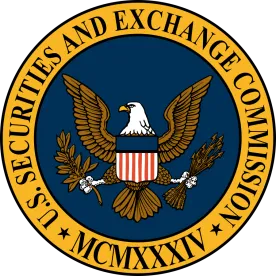SEC Chairman’s Public Statements
On April 2, 2020, Securities and Exchange Commission (SEC) Chairman Jay Clayton issued public statements available here and here encouraging public companies to provide material information to investors as soon as practicable. The SEC chairman stated, “Our investors and our markets thirst for information as a general matter. This is particularly the case in times of economic shock and uncertainty. Couple this fundamental premise with the reality that for COVID-19-related reasons issuers may not be able to file required quarter-end reports on time, and we have a challenge.” He went on to remind companies that “an inability to file required reports does not prevent issuers from issuing earnings releases and filing current reports on Forms 8-K.”
SEC Chief Accountant’s Public Statement
On April 3, 2020, SEC Chief Accountant Sagar Teotia issued a public statement emphasizing the importance of high-quality financial reporting in light of the significant impacts of COVID-19, available here. He stated, “We recognize that the accounting and financial reporting implications of COVID-19 may require companies to make significant judgments and estimates. Certain judgments and estimates can be challenging in an environment of uncertainty. As we have stated for a number of years, [the Office of the Chief Accountant] has consistently not objected to well-reasoned judgments that entities have made, and we will continue to apply this perspective.”
The SEC chief accountant’s statement outlines some of the accounting areas that may involve significant judgments and estimates in light of the evolving status of COVID-19, namely:
-
Fair value and impairment considerations
-
Leases
-
Debt modifications or restructurings
-
Hedging
-
Revenue recognition
-
Income taxes
-
Going concern
-
Subsequent events
-
Adoption of new accounting standards (e.g., the new credit losses standard)
The SEC chief accountant also discusses application of Section 4014 of the CARES Act, which provides certain financial institutions and affiliates the ability to defer adoption of FASB Accounting Standards Update No. 2016-13, Financial Instruments – Credit Losses (Topic 326): Measurement of Credit Losses on Financial Instruments (CECL), and of Section 4013 of the CARES Act, which provides that a financial institution may elect to suspend troubled debt restructuring (TDR) accounting under GAAP (see FASB Accounting Standards Codification Subtopic 310-40, Receivables – Troubled Debt Restructurings by Creditors) in certain circumstances related to the pandemic. For those entities that are eligible for, and that elect to apply, either Section 4013 or Section 4014 of the CARES Act, the SEC staff will not object to the conclusion that this is in accordance with GAAP for the periods for which such elections are available.
What To Do Now?
As we previously reported here, the SEC has issued an order giving public companies a 45-day extension to file certain disclosure reports otherwise due between March 1 and July 1, 2020, subject to conditions. Although the SEC order will allow many public companies to extend the deadlines for publicly filing their first-quarter reports on Form 10-Q, many factors weigh in favor of prompt disclosure. Investors are eager for updated information on companies’ performance and on the actual and expected impacts of the pandemic on companies’ liquidity, results of operations, and financial condition. In addition, public companies’ credit agreements often require regular financial reports and covenant compliance reports within a specified time after period-end, and public companies may have other contractual obligations to provide financial and related information on a timely basis. Waiting to publicly disclose some of this information may raise concerns about compliance with Regulation FD, as well as concerns about leaks that could cause irregularities in trading in the company’s securities. Companies whose insiders desire to trade company securities will also need to disseminate material nonpublic information before these trades can occur.
Meanwhile, public company finance, accounting, and financial reporting groups, particularly at smaller public companies, are challenged by the stresses of having to react quickly to changing and complex situations from an operational and financial perspective, with staff who are mostly working remotely and often caring for at-home children or elderly parents.
From a legal perspective, there is no general legal duty imposed on public companies to update prior disclosures, outside of required reports, when the company and its insiders are not trading company securities. Additionally, wrong or misleading disclosure is usually worse than no disclosure when disclosure is not required. Accordingly, public companies will need to balance their desire to provide public information quickly to investors with the need to produce actionable data to drive operational and financial decisions internally, and with the need to be confident in the reliability of the information they disclose publicly to investors.
Decisions about what to disclose publicly, and when to disclose it, will be based on facts and circumstances specific to each company. We encourage public companies concerned about public reporting to formulate a plan for what information will be reasonably available and at what time, in order to achieve the following:
-
Address the needs of internal operating and financial groups
-
Support key management and board decisions
-
Provide information required by contractual obligations
-
Share publicly with investors
Public companies may consider producing shorter or different internal or public reports than are typically provided, as long as such reports contain materially accurate and complete disclosures under the circumstances, and as long as legally and contractually required reports contain the required information. For example, in many cases, investors and boards of directors will be more interested in the company’s cash flow forecast and plans for the next few months or the rest of the year than they are in updates to the strategic plan for the next five years. When public companies are considering their public disclosures, we encourage them and their disclosure committees to consider the disclosure items outlined in the SEC’s CF Disclosure Guidance: Topic No. 9, available here.
Where Can I Find Additional Information?
The SEC chief accountant encourages public companies to contact the Office of the Chief Accountant with questions they encounter related to COVID-19. Information about the consultation process is available on the SEC’s webpage “Communicating with OCA,” available here.
The SEC’s actions related to COVID-19 are collected on its “SEC Coronavirus (COVID-19) Response” webpage, available here.





 />i
/>i


